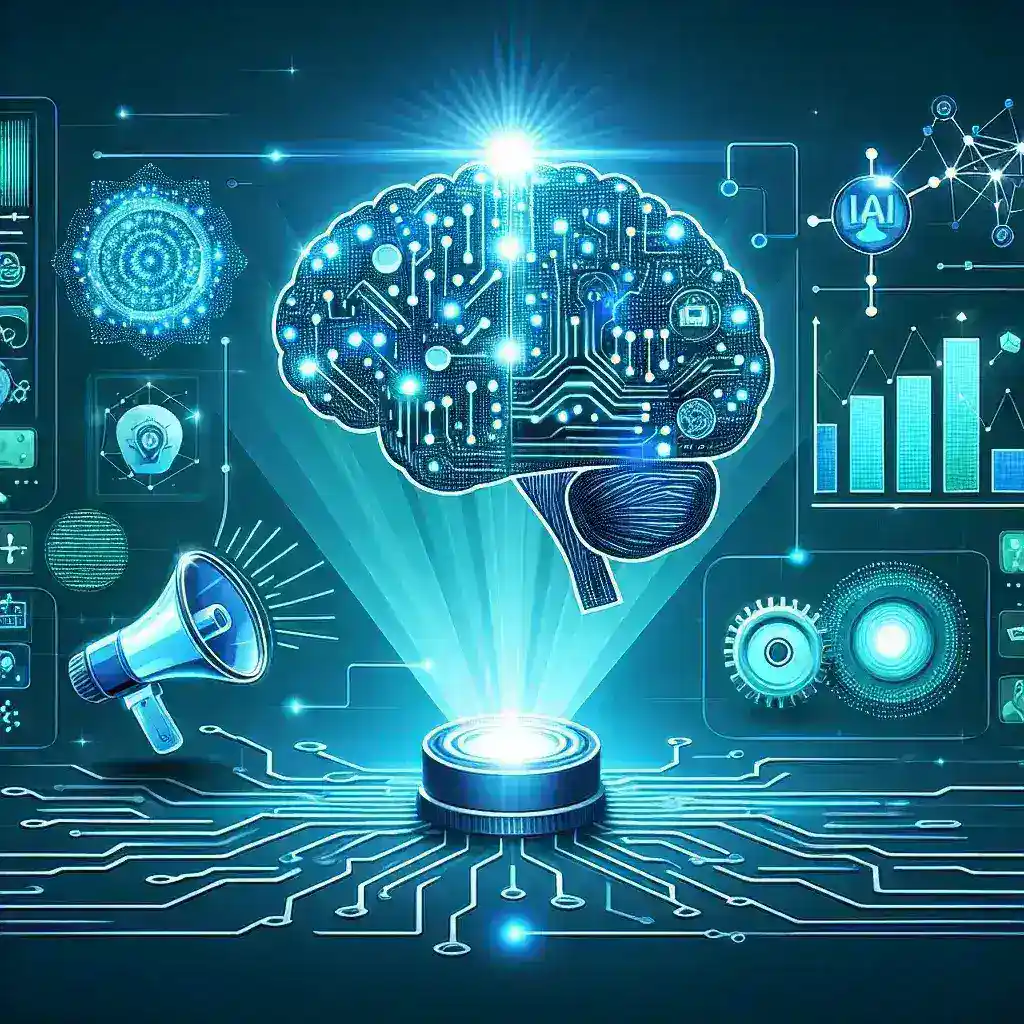In today’s rapidly evolving digital landscape, artificial intelligence has emerged as a game-changing force in marketing. The integration of AI tools into marketing strategies has fundamentally transformed how businesses connect with their audiences, optimize campaigns, and drive conversions. This comprehensive exploration delves into the most impactful AI marketing tools that are reshaping the industry and delivering unprecedented results for forward-thinking organizations.
The AI Marketing Revolution: Understanding the Paradigm Shift
The marketing industry has witnessed a seismic shift with the advent of sophisticated AI technologies. Unlike traditional marketing approaches that relied heavily on intuition and broad demographic targeting, AI-powered marketing tools leverage vast datasets, machine learning algorithms, and predictive analytics to create highly personalized and effective campaigns. This transformation has enabled marketers to achieve levels of precision and efficiency that were previously unimaginable.
From a professional standpoint, the adoption of AI in marketing represents more than just technological advancement; it signifies a fundamental reimagining of how brands interact with consumers. The ability to process millions of data points in real-time, predict consumer behavior, and automatically optimize campaigns has created new opportunities for businesses to achieve remarkable growth and customer engagement.
Content Creation and Optimization Tools
Advanced Writing Assistants
Modern AI writing platforms have revolutionized content creation by offering sophisticated natural language processing capabilities. These tools can generate high-quality blog posts, social media content, email campaigns, and marketing copy that resonates with target audiences. The most advanced platforms incorporate brand voice recognition, ensuring consistency across all communication channels while maintaining the authentic tone that customers expect.
Visual Content Generation
AI-powered design tools have democratized visual content creation, enabling marketers without extensive design backgrounds to produce professional-quality graphics, videos, and interactive content. These platforms utilize machine learning to understand design principles, color theory, and visual hierarchy, automatically generating assets that align with brand guidelines and campaign objectives.
Personalization and Customer Experience Enhancement
The era of one-size-fits-all marketing has definitively ended, replaced by hyper-personalized experiences that speak directly to individual consumer preferences and behaviors. AI tools excel at analyzing customer journey data, purchase history, browsing patterns, and engagement metrics to create unique experiences for each user.
Dynamic content optimization platforms can automatically adjust website layouts, product recommendations, and messaging based on real-time user behavior. This level of personalization has proven to increase conversion rates by up to 300% while significantly improving customer satisfaction and brand loyalty.
Predictive Analytics and Customer Intelligence
The power of AI truly shines in its ability to predict future trends and customer behaviors with remarkable accuracy. Advanced analytics platforms process historical data, market trends, and consumer patterns to forecast everything from optimal pricing strategies to the best times for campaign launches.
Customer Lifetime Value Prediction
AI tools can accurately predict the long-term value of individual customers, enabling marketers to allocate resources more effectively and focus on high-value prospects. This predictive capability transforms customer acquisition strategies and helps businesses make data-driven decisions about marketing investments.
Churn Prevention and Retention
By analyzing subtle changes in customer behavior patterns, AI systems can identify customers at risk of churning before they actually leave. This early warning system allows marketers to implement targeted retention campaigns and personalized offers that can salvage valuable customer relationships.
Social Media Management and Optimization
Social media marketing has become increasingly complex with multiple platforms, diverse audience segments, and constantly changing algorithms. AI tools have emerged as essential solutions for managing this complexity while maximizing engagement and reach.
Intelligent scheduling platforms analyze audience activity patterns across different time zones and platforms to determine optimal posting times. Content performance prediction tools can forecast which posts are likely to go viral or generate high engagement, allowing marketers to prioritize their most promising content.
Email Marketing Automation and Optimization
Email marketing remains one of the highest ROI marketing channels, and AI has significantly enhanced its effectiveness. Modern email marketing platforms utilize machine learning to optimize send times, subject lines, and content for individual recipients.
Subject Line Optimization
AI algorithms can test thousands of subject line variations and predict which ones will achieve the highest open rates for specific audience segments. This capability has revolutionized email campaign performance, with some businesses seeing open rate improvements of over 50%.
Dynamic Content Personalization
Advanced email platforms can automatically customize email content based on recipient preferences, past purchases, and behavioral data. This level of personalization extends beyond simple name insertion to include product recommendations, content suggestions, and personalized offers that drive significantly higher engagement rates.
Voice and Conversational AI
The rise of voice search and conversational interfaces has created new opportunities for marketers to connect with audiences through AI-powered chatbots and voice assistants. These tools provide 24/7 customer support while gathering valuable insights about customer preferences and pain points.
Sophisticated chatbots can handle complex customer inquiries, guide users through purchase decisions, and even upsell additional products or services. The most advanced platforms incorporate natural language understanding that enables them to engage in meaningful conversations that feel genuinely human.
Video Marketing and Production Tools
Video content continues to dominate digital marketing, and AI has made professional video production accessible to businesses of all sizes. Automated video creation platforms can transform text content into engaging videos complete with animations, voiceovers, and music.
Real-time Video Optimization
AI tools can analyze video performance in real-time and automatically adjust elements like thumbnails, titles, and descriptions to maximize engagement. Some platforms even offer dynamic video editing that creates multiple versions of the same content optimized for different platforms and audience segments.
Attribution and ROI Measurement
One of the most significant challenges in modern marketing is accurately attributing conversions and measuring ROI across multiple touchpoints. AI-powered attribution models can track customer journeys across devices, platforms, and time periods to provide comprehensive insights into campaign effectiveness.
These sophisticated attribution systems help marketers understand which channels, campaigns, and touchpoints contribute most significantly to conversions, enabling more informed budget allocation and strategy optimization.
Future Trends and Emerging Technologies
As we look toward the future, several emerging AI technologies promise to further revolutionize marketing practices. Augmented reality integration, advanced computer vision, and quantum computing applications are already showing potential for creating even more immersive and effective marketing experiences.
Ethical Considerations and Best Practices
While AI tools offer tremendous opportunities, marketers must also consider ethical implications and privacy concerns. Responsible AI implementation requires transparency about data usage, respect for customer privacy, and commitment to fair and unbiased algorithms.
The most successful organizations are those that balance AI capabilities with human creativity and empathy, creating marketing experiences that are both technologically advanced and genuinely valuable to customers.
Implementation Strategies for Maximum Impact
Successfully integrating AI tools into marketing strategies requires careful planning and phased implementation. Organizations should start with pilot programs, measure results carefully, and gradually expand AI adoption based on proven outcomes.
Training and education are crucial components of successful AI implementation. Marketing teams need to understand both the capabilities and limitations of AI tools to use them effectively and avoid common pitfalls.
Conclusion: Embracing the AI-Powered Future
The landscape of marketing continues to evolve at an unprecedented pace, driven by artificial intelligence innovations that are reshaping how businesses connect with their audiences. From content creation and personalization to predictive analytics and customer intelligence, AI tools have become indispensable assets for marketers seeking to achieve superior results in an increasingly competitive environment.
The organizations that will thrive in this new era are those that embrace AI technologies while maintaining focus on genuine customer value and authentic brand experiences. By leveraging the power of artificial intelligence thoughtfully and strategically, marketers can create campaigns that not only drive business results but also build meaningful relationships with their audiences.
As we move forward, the integration of AI in marketing will only deepen, offering even more sophisticated tools and capabilities. The key to success lies in staying informed about emerging technologies, experimenting with new approaches, and always keeping the customer experience at the center of all AI-powered initiatives.



Leave a Reply